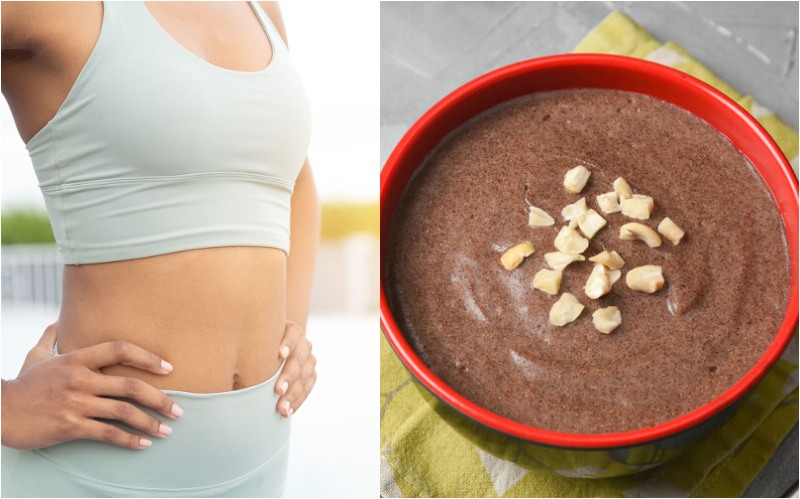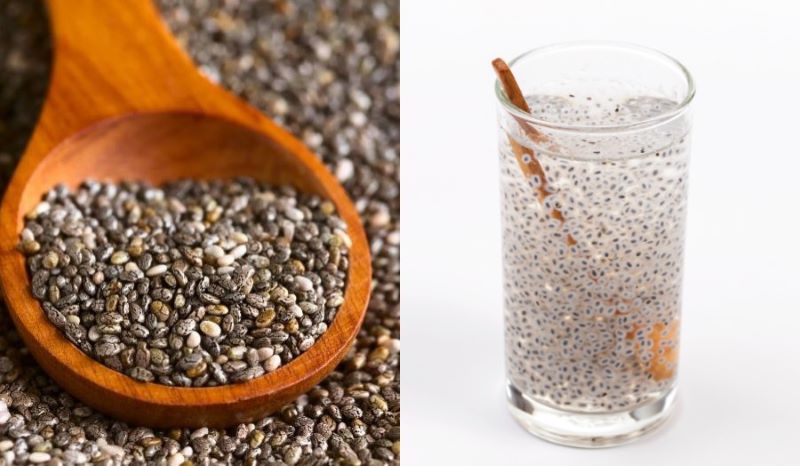Over the past few years, there’s no other supplement that has gained as much popularity as apple cider vinegar as an effective supplement to boost weight loss. Its affordability, easy availability, and the fact that it’s made from a natural source, apple, makes it an appealing product to everyone. Apple cider vinegar is also promoted widely as a safe ingredient to boost weight loss when complemented with a healthy diet and active lifestyle. But can apple cider vinegar really control hunger, and if yes, when to drink for optimal results? Let’s find out:

How Apple Cider Vinegar is Made?
It’s made by crushing and fermenting apples with yeast and bacteria, and in the end, what you get is acetic acid vinegar with a strong, pungent aroma with a tangy and acidic taste. The unfiltered version with “mother” (cloudy texture with sediments floating in it) is often considered better than the filtered version. Apple cider vinegar is also rich in minerals like potassium, magnesium, calcium, and phosphorous – all of these minerals play important role to keep metabolism high.
According to an article in National Library of Medicine, four out of six short-term studies showed that vinegar suppressed appetite.
The Effects of Vinegar/Acetic Acid Intake on Appetite Measures and Energy Consumption: A Systematic Literature Review – PMC (nih.gov)
Unveiling the Role of Apple Cider Vinegar in Weight Loss:
- The acetic acid content in apple cider vinegar has been found to suppress appetite, curb cravings, and stablize blood sugar when taken along or after a meal.
- Helps to blood sugar after a meal, therefore no sharp insulin spikes.
- Delays gastric emptying, so you would feel fuller for longer, helps to control hunger, and reduced calorie intake.
- Minerals such as potassium, calcium, magnesium and phosphorous boost metabolism.
- Fermented foods such as apple cider vinegar have been found to be good for gut health and experts say a robust gut can help one improve one’s chance at losing weight.
- Improves insulin sensitivity in women with PCOD. Though there needs to be more research done in this regard, it’s thought the acetic acid content in apple cider vinegar has been shown to have effects on glucose metabolism. Acetic acid may help to lower the rate at which glucose is released into the bloodstream after a meal, thereby preventing spikes in blood sugar levels. This can help improve insulin sensitivity by reducing the demand on insulin to manage blood sugar levels.
- Eases symptoms of heartburn and acid reflux.
- ACV has only 3 calories per tablespoon.
All these factors combined help to boost weight loss, ACV on its own has minimal effect.
Timing: When Is the Best Time to Drink ACV for Weight Loss?
It’s often recommended to consume ACV in a diluted form half an hour before each meal. Since it delays gastric emptying, avoid it right after a big meal. Consume one teaspoon diluted in a glass of water, and that way, you can have it before breakfast, lunch, and dinner, so maximum three times in a day, not more than that.
Tips To Keep in Mind While Consuming ACV:
- Since apple cider vinegar is highly acidic in nature, and can potentially damage teeth and esophagus, always drink it in a diluted form. Experts also recommend using a straw to sip it out of the glass.
- Use lukewarm or room temperature to make the ACV drink.
- Restrict consumption to just three times a day because drinking copious amounts may trigger severe side effects. If you have low potassium levels, low blood sugar or any other underlying medical condition, consult your doctor first to get the go-ahead.
Summing up, ACV on its own will not act as a magic potion to melt away fat – a calorie-deficit diet, exercise, coupled with lifestyle changes will lead to significant weight loss. Also do check this out homemade ABC juice recipe which is made with only three ingredients and may boost weight loss.















































































































